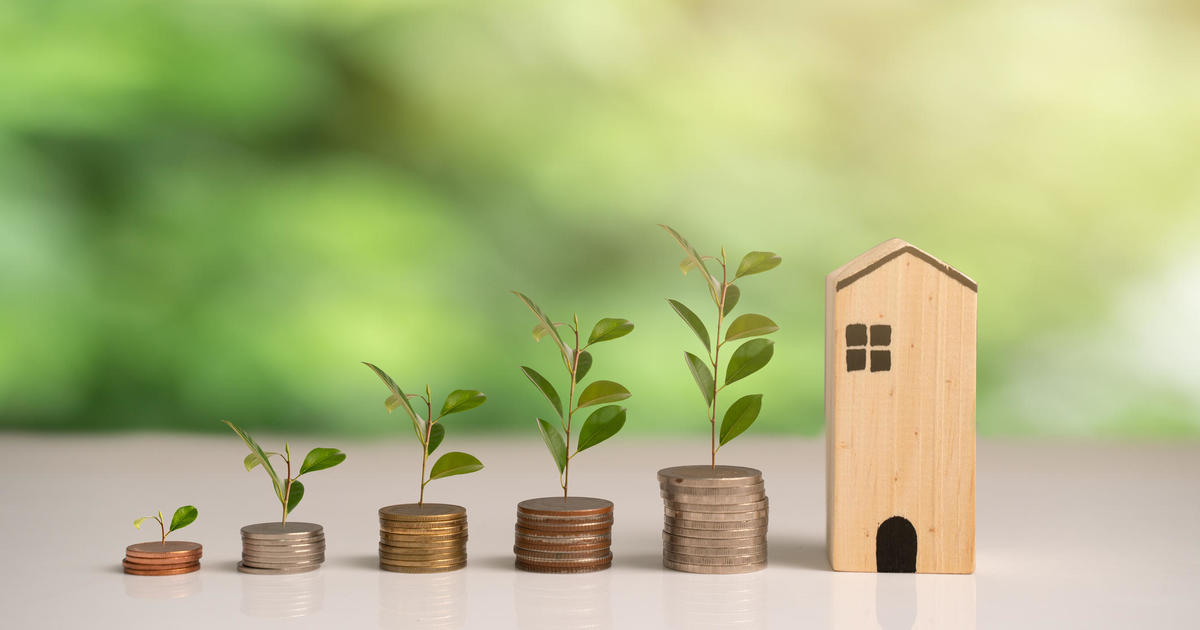Too many homebuyers and not enough homes
Across the Charles River from Boston is Cambridge, one of those places where people can't seem to buy enough real estate. No matter what size or condition, houses here receive multiple bids and seldom stay on the market for more than a day. Some buyers pay upwards of a half-million dollars to knock down a house so they can build two homes on the same small lot.
Is this rational behavior for a market where, not too many years ago, banks couldn't give foreclosed houses away? Probably not, says Chief Economist Lawrence Yun of the National Association of Realtors (NAR). He's seeing signs that housing is headed for a slowdown, at least temporarily.
"Home buyers are facing an 'affordability challenge,'" said Yun. "The inventory shortage has been pushing prices up too fast beyond people's income growth."
Yun's prognosis is backed by hard facts. Black Knight Financial Services' latest monthly report on the Housing Price Index issued on Monday showed that while prices continue to increase, the rate they're climbing has been slowing each month since its high in March. Black Knight provides data and analytics for the real estate industry, banks and government agencies.
The NAR's most recent figures show a dip in the price of existing-home sales, down nearly $10,000 nationwide in the last two months, even as some metro areas like Atlanta; Austin, Texas; and Boston reach new highs.
But here's the quandary: The easing, at least in most housing markets, is taking place at the same time that the number of existing homes for sale is shrinking, down 1.7 percent from July to August. "There should be 3 million homes on the market right now," said Yun. "Yet, there are only 1.9 million."
Theoretically, a shortage in any market, such as gasoline or water, can unleash "buyer's panic," in which people stand in line for hours and pay virtually any price for a product. But housing is different because it has so many middlemen. Bankers, mortgage companies, realtors and government agencies all need to be assured you can legitimately afford to buy an urban high-rise condo or suburban McMansion -- particularly since the last real estate frenzy ended with the Great Recession.
So while the U.S. economy is adding nearly 200,000 jobs a month, wages aren't staying ahead of the more than 6 percent year-over-year rise in housing prices. Wages have remained flat for nearly a decade, and that has damaged potential buyers' ability to keep up with their monthly mortgage, insurance, utilities and taxes -- all an integral part of the cost of home ownership.
The good news: The housing slowdown, both in price and number of sales, isn't that severe and could just be temporary. "I'm fairly confident that what's lost will be back in 2018," said Yun. He predicts a 4.5 percent rise in existing home prices next year.
The bad news: The recent hurricanes that devastated Florida, Louisiana, Puerto Rico and South Texas might delay any improvement in housing stock and should keep the houses that go on the market out of the reach of many first-time and younger buyers.
The best and fastest way to solve a housing shortage is always to build new homes. But thanks to Hurricanes Harvey, Irma and Maria, the labor force and construction materials that would build new homes is likely to go instead into rebuilding the existing houses that were flooded and torn apart by high winds.
"Before the hurricanes I would have predicted 1.35 million in new-home construction in 2018," said the NAR's Yun. "I'll have to scale that down now."
But by how much is uncertain. Areas hard-hit by these major storms, like Florida and Houston, represent more than 10 percent of the total housing market in the country. And private money for homebuilding will be competing with federal money provided by the Federal Emergency Management Agency. FEMA is likely to spend much more than $100 billion repairing damage in these major markets, as well as in totally devastated Puerto Rico.
Home sellers need not be overly worried -- at least not yet. The summer doldrums generally tend to be a slow period for homebuying coming on the heels of the spring rush when many families want to be settled before the school year begins. So housing values in many markets are still soaring.
"New York home prices showed continued strength, leading all states in monthly appreciation at 1.8 percent," said Black Knight in its report. And year-over-year price appreciation has "stabilized" at 6.2 percent.



